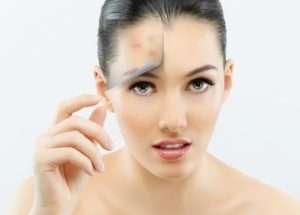In today’s society most of us are extremely savvy and well informed about what causes skin ageing, from UV rays to alcohol consumption, as well as the many methods to rectify these concerns. One skin care topic which is less discussed is hormonal ageing, how exactly do hormones affect ageing? And what can we do to keep our skin youthful regardless of these changes?
Estrogen
The production of estrogen begins to decline in our mid-thirties, we then take a more dramatic decrease in the approach to menopause. Estrogen plays a big role in our fibroblast cells producing collagen, when our estrogen begins to decrease this results in deeper lines, dehydration, dullness and thinning of the epidermis. There are many foods which can naturally increase estrogen, such as;
* Soybean products
* Flaxseed (linseed)
* Sesame and sunflower seeds
* Beans (pinto beans, limas and peas all contain coumestan, a great source of phytoestrogen
* Garlic
* Dried fruits
* Vit C rich fruits such as strawberries and citrus fruits
* Whole grains
* Root vegetables
* Olive oil (better to consume uncooked as it loses its benefits when heated at high temperatures)
We can also counteract the signs of estrogen loss by-
* Having regular collagen boosting treatments such as micro needling and LED light therapy
* Improving muscle tone with micro current facials
* Wearing a high SPF
* Adding retinol to our skin care routine
Insulin
Insulin is a hormone which assists in regulating our blood sugar levels, ageing of the skin can be accelerated by high levels of insulin. This can be caused by consuming foods high in sugar, such as white pasta, pastries, cakes etc. High levels of sugar can have a devastating effect on collagen, causing it to break down, which also results in our elastin becoming impaired making it more difficult to ‘snap back’ into shape. For those of us with a sweet tooth we there are many foods which are low in sugar and are packed with anti-oxidants to fight off free radical damage;
* Strawberries
* Raspberries
* Blackberries
* Blueberries
DHEA (dehydroepiandrosterone)
This hormone is naturally produced by the body in our adrenal gland, and also helps us to produce other hormones like estrogen and testosterone. DHEA peaks in early adulthood and continues to decline as we age, many researchers believe one of the symptoms of the demise of DHEA is a decrease in muscle mass, resulting in sagging and less firm skin. We can reduce adrenal stressors to keep our DHEA levels up;
* Aim to try and get eight hours sleep each night
* Stress reducing treatments such as massage or reflexology
* Anti-inflammatory herbs included in meals, such as ginger, turmeric, oregano and rosemary.
* Vitamin D (regular UV exposure)
* Healthy fats- olive oil, avocados and omega 3 found in oily fish.
Testosterone
Although this is generally thought of as a male hormone it is also produced in the ovaries as well as the testes, however men roughly produce around ten times more testosterone than women. The androgens (testosterone) which is found in male skin have a much firmer network of collagen fibres than those found in female skin, when you combine this with firmer hair follicles this results in men having a thicker epidermis, thus concluding in male skin ageing slower. It could be argued that this evens itself out as women tend to take more care of their skin by having regular skin treatments and using a good skin care system. For our male clients they can fight the signs of ageing when their testosterone starts to decline by following these simple steps;
* Wearing an SPF moisturiser every day
* Including plenty of vitamin A & C in their diet
* Drinking two litres of water each day (more if working out)
(Excess testosterone can also contribute to adult acne)
Progesterone
Do you ever notice when women are pregnant they have that radiant ‘glow’ about their skin? That is because of the increased levels of progesterone. When balanced with estrogen levels it helps the estrogen to function more effectively, resulting in firm, hydrated and youthful skin. Unfortunately like many of our bodies other anti-aging tools, it begins to decline as we age, however there are ways we can naturally increase our progesterone levels;
Curry
Thyme and oregano
Soy milk
Wild yams
Red meat
At Radiance we offer a free skin care consultation service to discuss your concerns with one of our expert skin care specialists, feel free to call in or contact the salon on 02890 600031 to arrange a consultation.


